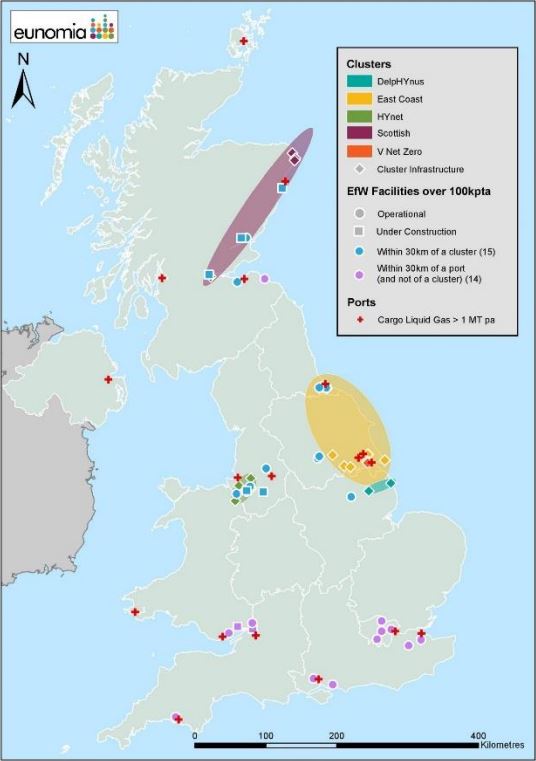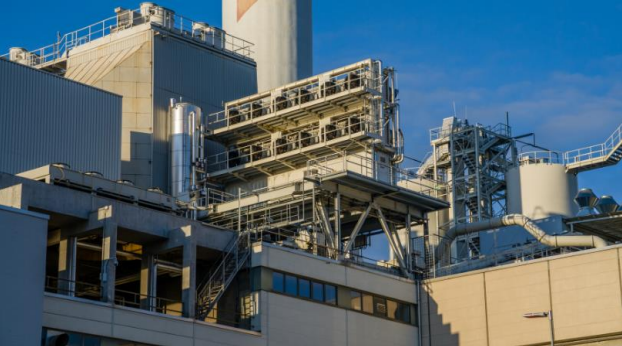In a report published on 4 October, Zero Waste Europe describes CCS at EfW plants as “an expensive distraction to a circular economy”.
Created in 2014, the Zero Waste Europe network includes 32 members across 28 countries. In the UK, its members include the UK Without Incineration Network (UKWIN), which describes itself as a network of anti-incineration campaign groups.
However, a report published today (5 October) by consultancy Eunomia and commissioned by waste management company Viridor claims that using carbon capture, utilisation and storage (CCUS) technology on EfW facilities could be “some of the cheapest” of any industrial sector.
This is thanks in “large part” to the location of many facilities close to potential CCUS ‘clusters’ and port hubs, Eunomia says.
Each report agrees that EfW plants release an average of around one tonne of CO2 for every tonne of waste processed. Eunomia estimates that the UK’s EfW facilities processed approximately 14 million tonnes of waste in 2020.
Clusters
In CCUS Development Pathway for the EfW Sector, Eunomia says the government expects that CCUS will initially develop in ‘clusters’ around industrial emitters with access to “suitable” offshore storage locations.

The report says this will play a key part in “decarbonising non-recyclable waste, which will be essential to delivering Net Zero in 2050”.
Eunomia expects costs of CCUS on EfW facilities to range between £66 and £110 per tonne of CO2, with the lower costs relating to EfW facilities in closer proximity to CCUS clusters due to shared infrastructure.
There are currently 48 operational EfW facilities in the UK, with a further 16 under construction, the report says. It claims they are “ideally placed” to underpin development of industrial CCS clusters.
The report concludes that its research suggests there is a “key role” for CCUS in reducing emissions from incineration, which can potentially be supported by the removal of remaining recyclables from the residual waste stream through mixed waste sorting.
Support
Andrew Coulthurst, senior consultant at Eunomia, said: “Many EfW facilities in the UK are ideally located within close proximity of potential CCUS clusters or port hubs that should make the deployment of CCUS on EfW at least as cost-effective as other sectors, which should provide confidence to industry and government that CCUS has a viable role to play in decarbonising the sector over the coming decades.
Many EfW facilities in the UK are ideally located within close proximity of potential CCUS clusters or port hubs– Andrew Coulthurst, senior consultant at Eunomia
“To support the decarbonisation of the waste sector, the government must also deliver on its commitments to increase recycling in order to reduce the amount of recyclable material, particularly fossil-based plastic, that reaches EfW facilities by introducing target-based EPR, a wide-ranging DRS and improved mixed waste sorting.”
Waste prevention
However, Zero Waste Europe’s report, which advocates focusing on waste prevention, suggests that diverting material from EfW would deliver lower carbon outcomes for “much less money and much less risk” than using CCS.

It estimates that, for a 350,000 tonnes per year capacity EfW plant, the use of CCS would increase capital expenditure from £220 million to £320 million and operational expenditure from £12 million to £16 million.
Zero Waste Europe also suggests that investing in CCS for EfW plants “exacerbates the lock-in effect of incinerators”.
The report’s author, Shlomo Dowen, is also national coordinator of UKWIN. He said: “Investment in carbon capture for incinerators makes no sense when what is needed for the climate is to phase out the use of incinerators as soon as possible.
“I hope this report triggers a much-needed discussion across the UK about how best to transition away from residual waste and towards a circular economy that is better for the climate.”
‘Lock-in effect’
Most of the material currently used as EfW feedstock “could and should” have been recycled or composted, Zero Waste Europe’s report claims.
It says an estimated 53% of the total residual waste from household sources in England in 2017 was readily recyclable, 27% was potentially recyclable, 12% was potentially substitutable, and only 8% was difficult to either recycle or substitute.
Related links
CCUS Development Pathway for the EfW Sector
CCS for incinerators? An expensive distraction to a circular economy









Subscribe for free